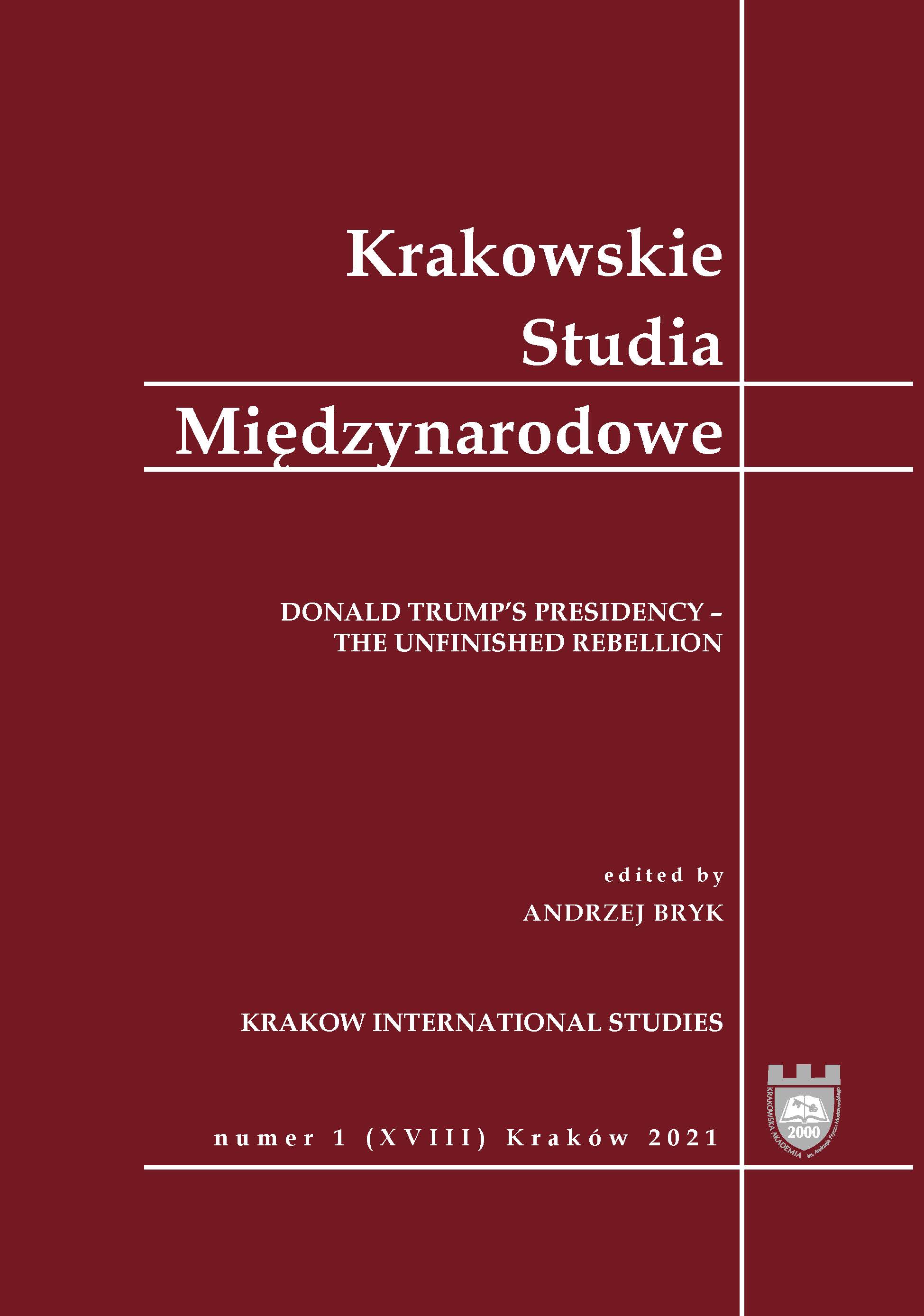Trump and the Conservative Movement
Trump and the Conservative Movement
Author(s): Andrzej BrykSubject(s): Politics / Political Sciences, Political Theory, Public Administration, Public Law, Government/Political systems
Published by: Oficyna Wydawnicza KA AFM
Keywords: Trump’s presidency; American Conservatism in the 21st century; culture wars; populism; liberal oligarchy; technocracy; identity politics;
Summary/Abstract: United under Regan by anti-communism, the US Conservative movement is now deeply divided. This division was already visible in the so-called Sarah Palin’s conservative populism and the Tea Party movement. However, it showed itself in full force when the Republican party elite, living in symbiosis with liberals from the Democratic Party, had to respond to Donald Trump’s electoral success. It turned out that the traditional Republican electorate did not back the party’s globalist elite, but an outsider. Trump gained the support of that section of conservatives who rejected integration into the hegemonic ideology of leftist liberalism with its destructive narrative of “American iniquity” and the adoption of the technocratic global oligarchy model as the only possible “end of history”. Conservatives supporting Trump’s candidacy referred to the tradition of American conservatism, appealing to the Founding Fathers, the Constitution and national pride and supporting the idea of metaphysical freedom, ontologically rooted in being greater than the autonomous will of the individual. Thus, the possibility of agreement with the oligarchic elite professing identity liberalism is very limited. However, it is possible to create a tactical alliance between conservatives, especially religious ones, and libertarians. Despite fundamental anthropological and philosophical differences, the link is a common enemy – liberal identity politics. Additionally, Trump’s victory forces all currents in Regan’s conservative coalition to revise their goals and adjust to the new reality, as Trump did not appeal to economic globalism but called for the restoration of social solidarity and republican responsibility for all. He was aware of the possibility of creating a new coalition in the camp of conservatives and republicans, which must find a new common political goal, combining social and cultural conservatism with economic populism. Donald Trump, however, met with stiff opposition from conservatives who accept the technocratic hegemony of leftist liberalism along with the sexual revolution and new anthropology.
Journal: Krakowskie Studia Międzynarodowe
- Issue Year: XVIII/2021
- Issue No: 1
- Page Range: 195-227
- Page Count: 33
- Language: English

